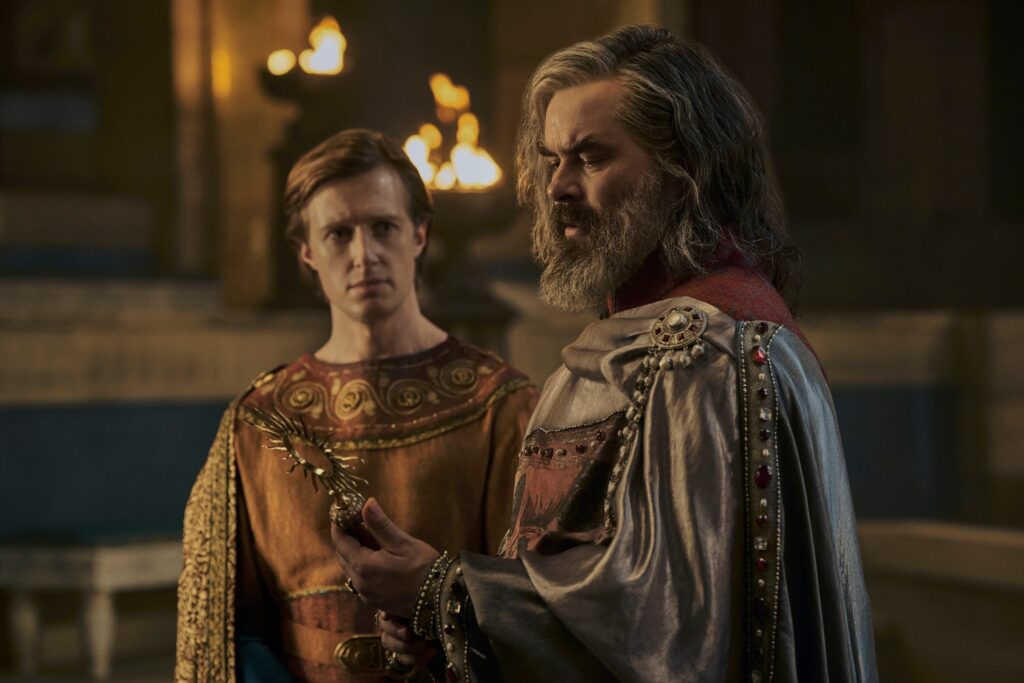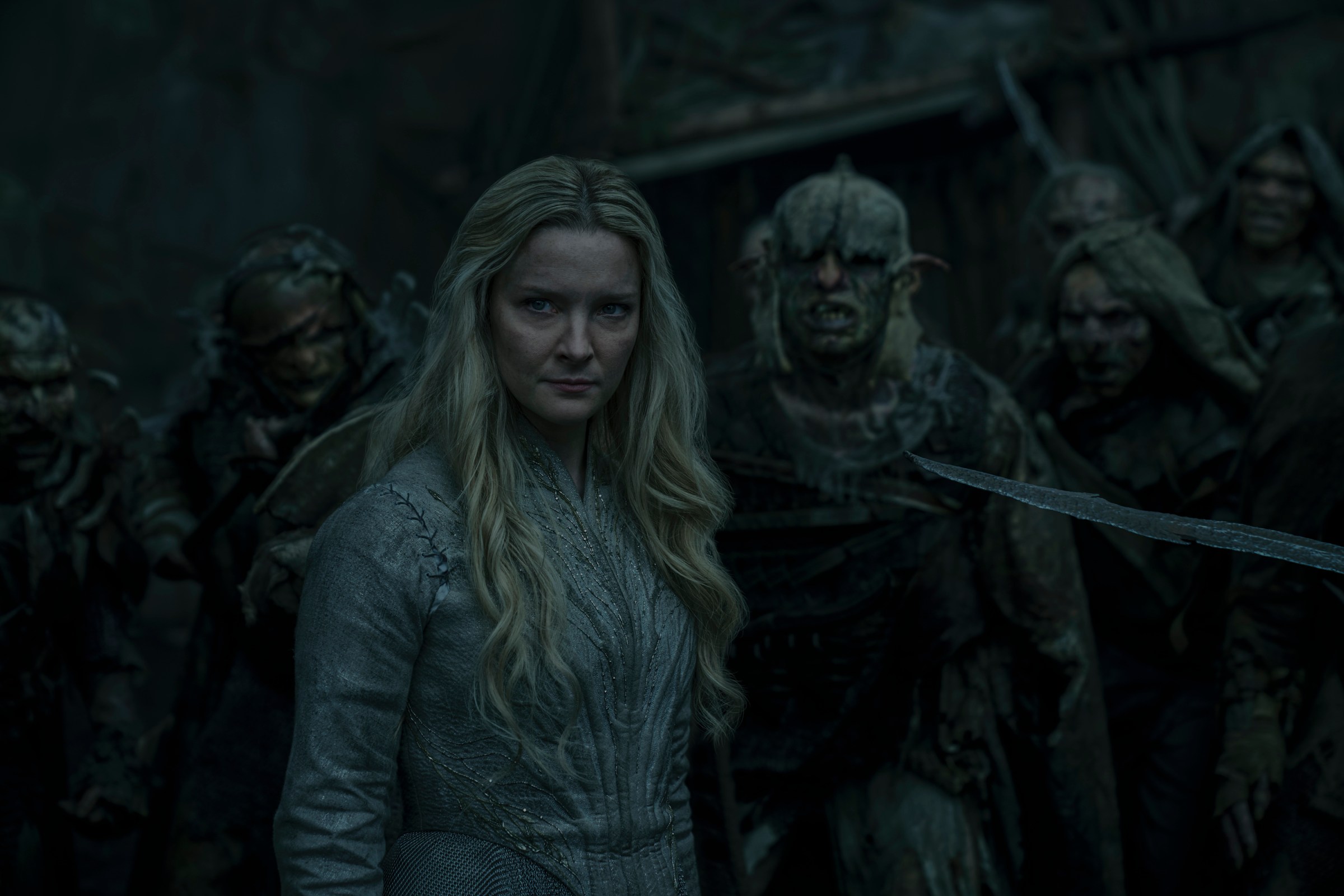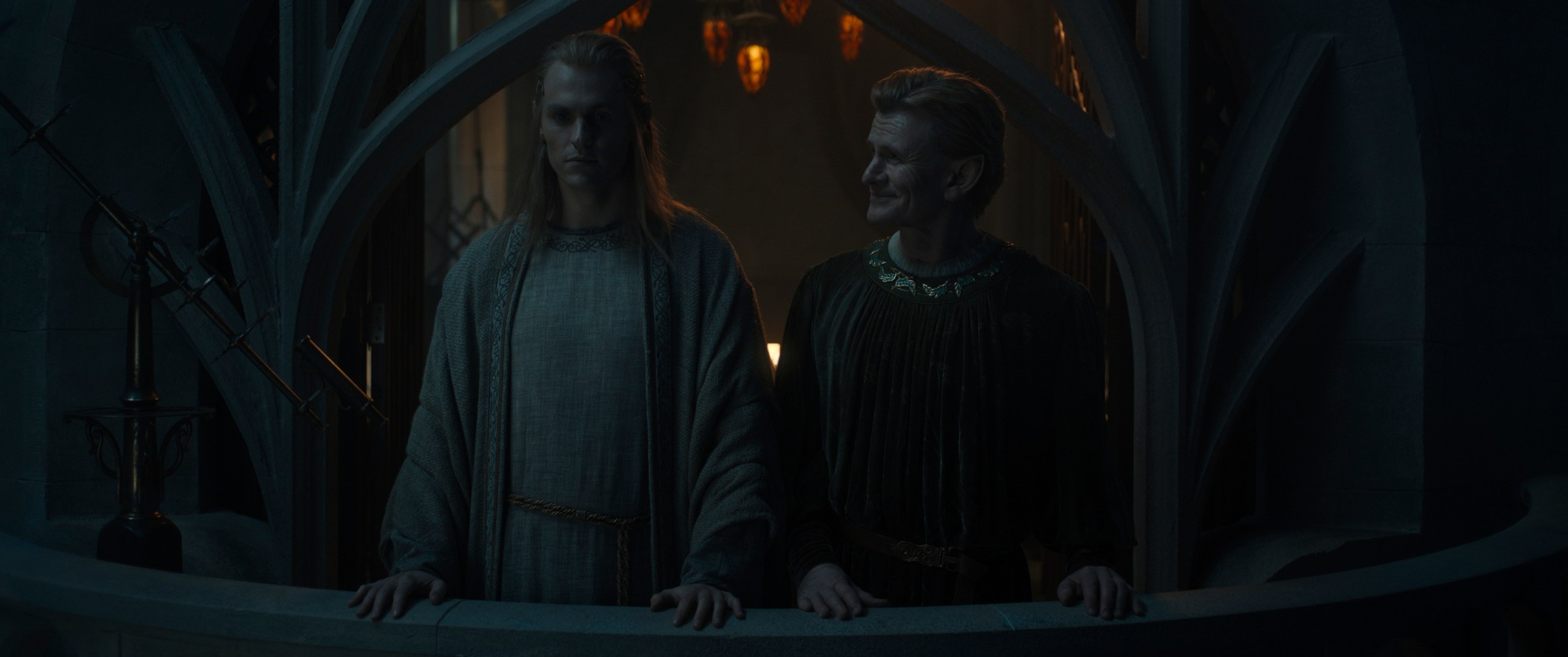It figures that in a show named The Rings of Power, power of all sorts would factor into proceedings pretty heavily. This is especially true of season 2, episode 6, which sees director Sanaa Hamri and writer Justin Doble divide the Lord of the Rings series’ heroes and villains into two camps: those who wield power effectively and those who don’t. Ostensibly, this approach should work, neatly tying together the second season’s various storylines through a shared theme. And it does — up to a point. Yet episode 6’s fixation on power dynamics also results in The Rings of Power’s least satisfying installments in weeks that, ironically, epitomizes one of the show’s biggest weaknesses.
[Ed note: This article contains spoilers for The Lord of the Rings: The Rings of Power season 2, episode 6.]
Don’t worry: I’m not about to go on another rant about The Rings of Power’s extraneous storylines. At this stage in the season, there’s nothing left to say on that front; at least here, the arresting visuals Hamri and the wider crew conjure up (Soaring shots of exotic vistas! A delightfully grotesque sea monster! Flaming boulders hurtling through the night sky!) help even the less well-conceived story beats in episode 6 go down smoothly enough. That said, some of the episode’s narrative developments warrant greater exploration than others. And spoilers: None of those that do take place in the desert.
One does unfold across (and beneath) the sea, however. That’s where Míriel and Pharazôn undertake their latest round of political arm wrestling for control over Númenor. On paper, newly minted monarch Pharazôn should have the edge. He’s already ousted Míriel, and is one trial-by-sea ritual away from taking Elendil off the board. That is, until Míriel pulls a Katniss Everdeen, enters the water on Elendil’s behalf, and emerges alive — and, seemingly, favored by the divine. A blind woman with few friends left wins back the (comically fickle) Númenórean public with a display of true power. That this then sends the anti-elf Pharazôn scurrying off to a palantír for guidance only underscores how superficial his newfound authority truly is compared to Míriel’s.
Unfortunately, the tug of war for power is less positively charged over in Middle-earth proper. Indeed, the baddies comprehensively outmaneuver their benevolent counterparts as easily as a hobbit puts away their second breakfast. Episode 6’s meeting of the minds between Galadriel and Adar is a prime example of this. The elf-orc alliance teed up in episode 5 turns out to be a highly effective ruse designed to trick Galadriel into spilling her intel. It’s the latest low point for the elven warrior in a season full of them; her prowess on the battlefield apparently doesn’t translate to basic strategic acumen. If there’s a silver lining here — aside from watching Morfydd Clark and Sam Hazeldine verbally sparring — it’s that Adar is himself being played by Sauron. And, like Galadriel, he really should see it coming.
One of the more interesting moments in the pair’s banquet table back-and-forth comes when they compare notes about Sauron’s skills as a manipulator. “For a while he even makes you believe his power has become yours,” Adar observes. “Irresistible power that makes every desire’s fulfillment seem possible.” And that’s just what the Dark Lord has done yet again: He’s convinced Adar that his ultimate goal — killing Sauron for good — is within reach. All Mordor’s current boss needs to do is wipe Eregion off the map. But as Galadriel eventually twigs, the only person who truly benefits from this course of action is Sauron. He’ll reduce a major elven stronghold to rubble, without ever raising an army of his own, skipping town with the last batch of rings while he’s at it. Adar’s playing checkers; Sauron’s playing chess.
In fairness, he’s hardly the only poor soul in episode 6 getting schooled in how to really wield power by Sauron. By the episode’s end, Celebrimbor is more under the control of “Annatar” than ever, a few flashes of defiance — and some instantly GIF-able side-eye from the great Charles Edwards — proving no match for a hefty dose of magic-fueled gaslighting. As a result, it’s Sauron leading Eregion’s defenses when Adar’s attack begins, just the way he wants it. The same goes for Durin III sending Sauron home empty-handed from Khazad-dûm; it momentarily looks like Sauron’s taken an L, only for us to realize it’s all part of the bigger web he’s spinning. Sauron’s balrog-sense (or whatever that fiery bit of foreshadowing was) combined with Charlie Vickers’ shit-eating smirk leave us in no doubt that this is a guy who gets there’s power in doing nothing, too.
In some ways, it’s a further expansion of season 2’s more insidious, less overtly malevolent take on Sauron, although this time around, it’s decidedly less effective. Part of this is because episode 6 mostly drops the cosmic evil aspect of Sauron’s recent characterization in favor of the more grounded, “knowable” villain the showrunners have insisted on giving us elsewhere this season. But more than that, it’s because The Rings of Power itself generally struggles with portraying power plays and political wheelings and dealings. That’s hardly surprising, either. Sure, there’s plenty of fun to be had with cross- (and intra-) species spats — not to mention precedent for both in J.R.R. Tolkien’s writings — but it’s arguably not part of The Lord of the Rings’ core appeal in the same way as it is in, say, House of the Dragon.
Yes, The Rings of Power’s sort-of/sort-of-not source material The Silmarillion gets plenty of mileage out of the oath-making of Celebrimbor’s ancestor Fëanor and associated fuckery. It (and The Lord of the Rings’ Appendices) mine the folly of Pharazôn and his flunkies to good effect, too. Yet epic battles, legendary quests, and biblical parables are the bread and butter of Tolkien’s canon, not Westeros-style intrigue and deep dissertations on the true nature of (and philosophy behind) power. So, whenever The Rings of Power’s creative team decides to squeeze this stuff into the show’s already maxed-out story, it rarely works. On the contrary, stuff like Númenor’s gradual moral decay and Sauron’s continent-spanning machinations often feel bolted on, rushed, and worst of all, oversimplified. In the case of the former, the show doesn’t even engage with the limited agency for someone like Míriel to fight back against the power structures of her society — something even Tolkien managed, if unwittingly (not everyone gets to be Éowyn, in real life or in Middle-earth).
It’s as if those involved felt obligated to interrogate what makes the people calling the shots in Tolkien’s fantasy world (openly or otherwise) tick, only they didn’t have quite enough insight — or the right IP — to pull it off. Nor did they have the necessary screen time, which further undermines episode 6’s power-centric commentaries by having them play out with the 1.2x button firmly held down. It’s frustrating, especially following the show’s recent run of form. But hey, the Siege of Eregion is finally here, which means awkward meditations on power are out, and blockbuster set-pieces are in. Hopefully, this shift will get The Rings of Power season 2’s final two episodes back on track. After all, the show’s biggest strength — its undeniable power, even — lies in bringing cinematic spectacle to the small screen.



